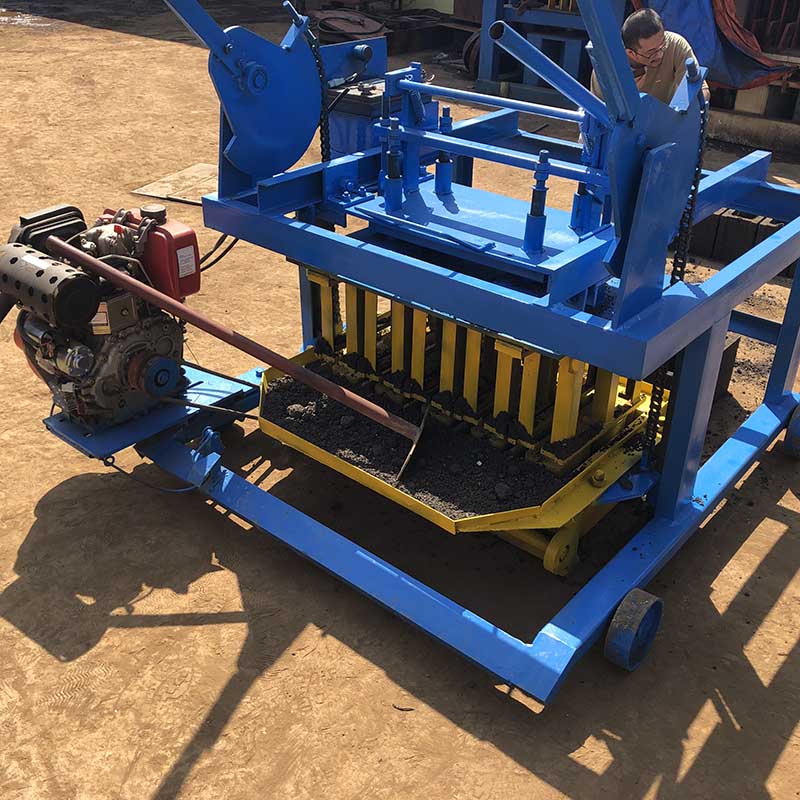
image source: Aiwei block making machines
Introduction: Mozambique, a country with a growing population and increasing urbanization, faces significant challenges in meeting its infrastructure needs. To address this, the Mozambican government has implemented various initiatives and policies aimed at promoting the adoption of block making machines for infrastructure development. This article explores the role of government interventions in facilitating the widespread adoption of block making machines and their impact on infrastructure development in Mozambique.
- Infrastructure Development Challenges in Mozambique:
- Mozambique’s infrastructure development has been constrained by factors such as limited access to building materials, inadequate transport networks, and a shortage of skilled labor.
- The country’s rapid urbanization and population growth have further exacerbated the demand for infrastructure, including housing, schools, hospitals, and roads.
- Government Support for Block Making Machines:
- In recent years, the Mozambican government has recognized the potential of block making machines to address the country’s infrastructure challenges effectively.
- Various initiatives and policies have been introduced to promote the use of block making machines, including subsidies, tax incentives, and capacity-building programs for block manufacturers.
- The government has also invested in research and development to enhance the efficiency, sustainability, and affordability of block making technology.
- Subsidies and Financial Incentives:
- The Mozambican government offers subsidies and financial incentives to encourage the adoption of block making machines by local entrepreneurs and small-scale enterprises.
- These incentives may include grants, low-interest loans, and tax breaks for purchasing block making machinery, setting up production facilities, and training workers.
- By reducing the upfront costs associated with acquiring block making machines, these subsidies help to make the technology more accessible to aspiring entrepreneurs and promote the growth of the block manufacturing sector.
- Capacity-Building and Skills Development:
- To support the widespread adoption of block making machines, the Mozambican government provides training and capacity-building programs for block manufacturers, machine operators, and construction workers.
- These programs aim to enhance technical skills, improve production efficiency, and ensure the quality of block products.
- By investing in human capital development, the government seeks to create a skilled workforce capable of driving innovation and sustaining the growth of the construction sector.
- Regulatory Framework and Standards:
- The Mozambican government has established regulations and standards governing the production, use, and quality of blocks manufactured using block making machines.
- These regulations ensure compliance with international standards, promote product quality and safety, and protect consumers and the environment.
- By enforcing stringent quality control measures, the government aims to build confidence in locally produced blocks and promote their use in infrastructure projects.
- Public-Private Partnerships (PPPs):
- The Mozambican government actively engages with the private sector through public-private partnerships (PPPs) to promote the adoption of block making machines and accelerate infrastructure development.
- PPPs facilitate collaboration between government agencies, private investors, technology suppliers, and civil society organizations to address infrastructure challenges collectively.
- By leveraging the resources and expertise of both the public and private sectors, PPPs can drive innovation, attract investment, and deliver sustainable infrastructure solutions.
- Conclusion:
- Government initiatives and policies play a crucial role in promoting the adoption of block making machines for infrastructure development in Mozambique.
- By providing subsidies, financial incentives, capacity-building programs, and regulatory support, the government creates an enabling environment for the growth of the block manufacturing sector.
- Through public-private partnerships and collaboration with stakeholders, the government can harness the potential of block making machines to address Mozambique’s infrastructure challenges effectively and pave the way for sustainable development and economic growth.
Rate this post